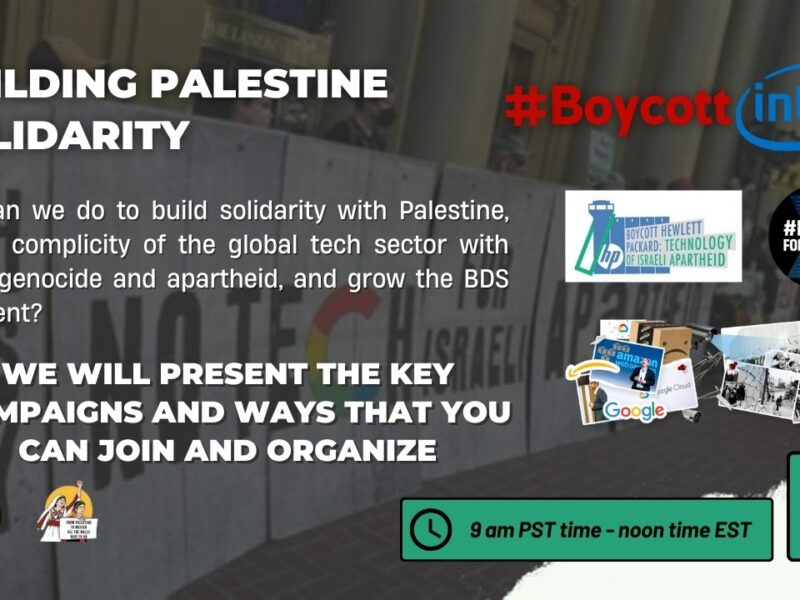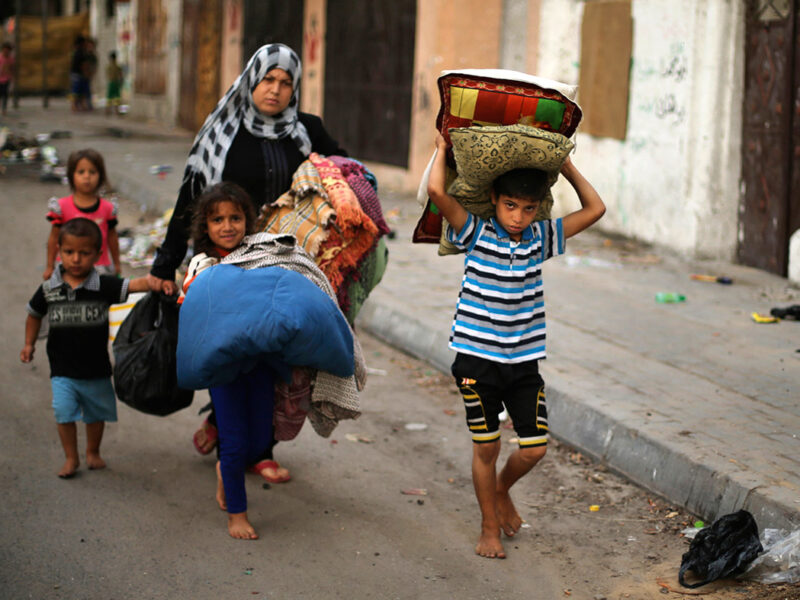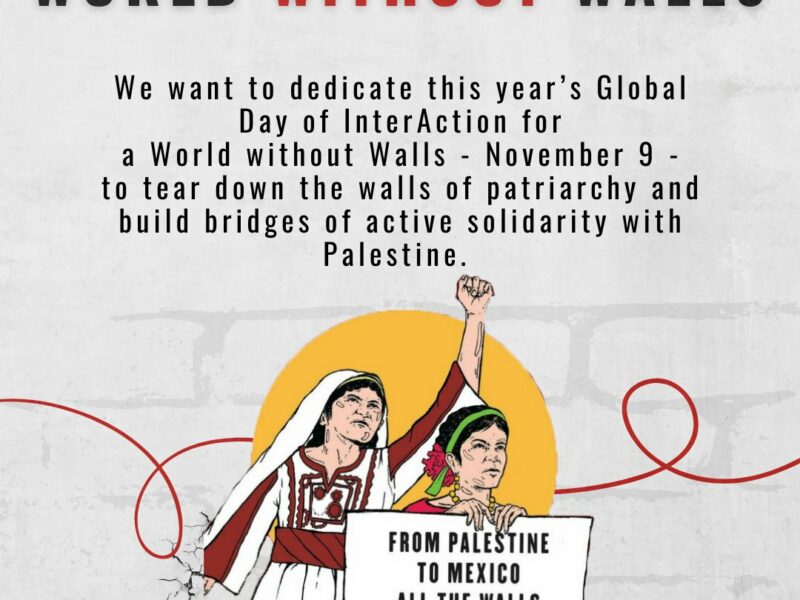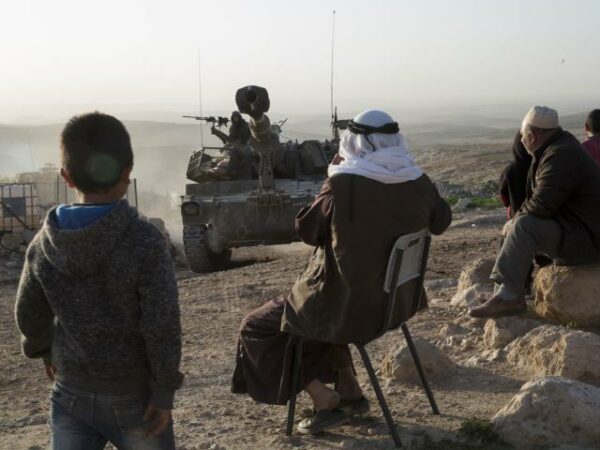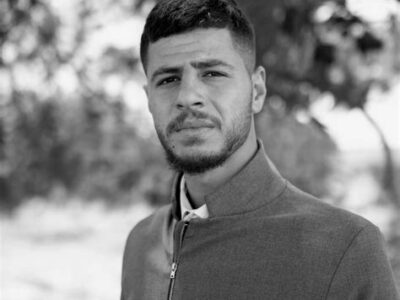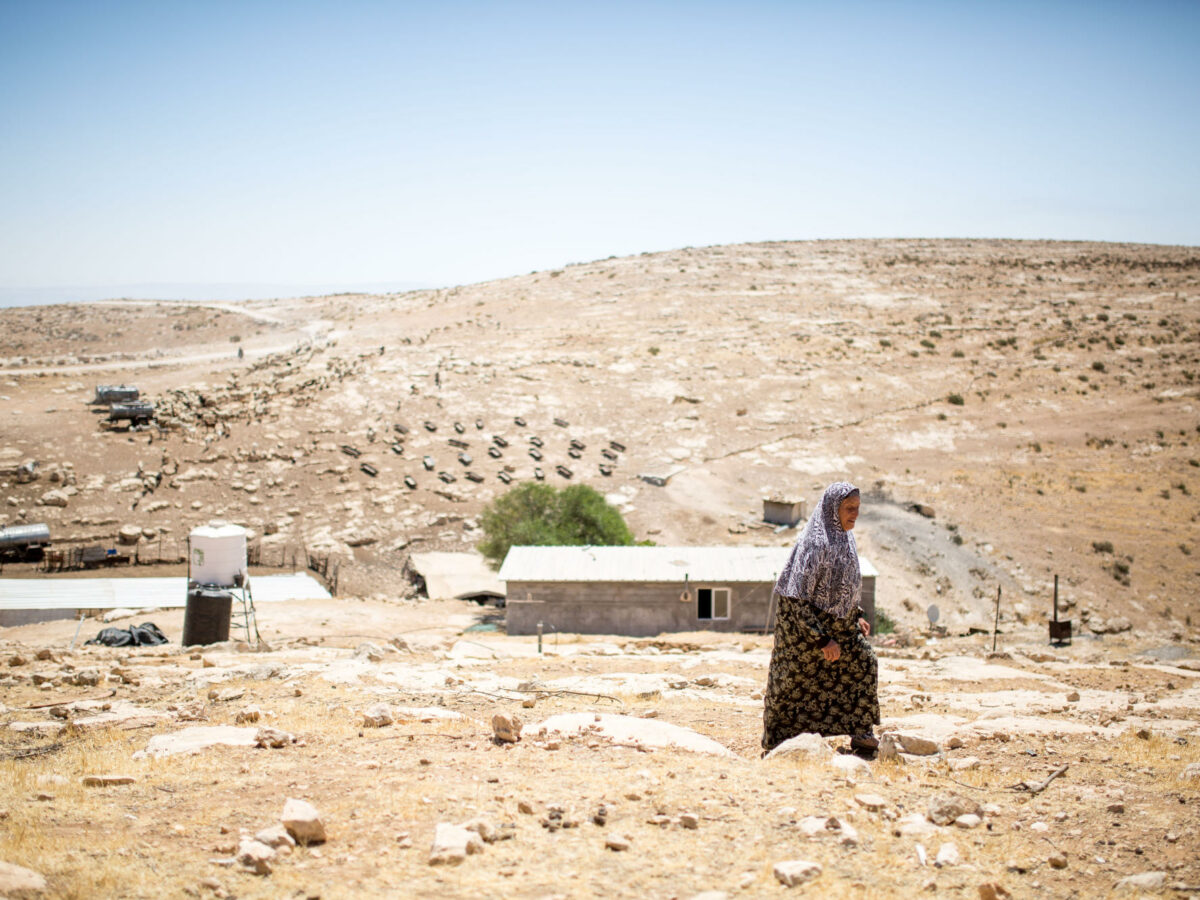The Right to Water
Water apartheid and pillage
The water crisis that Palestinians have been facing is primarily a result of a systemic attack on Palestinian water rights and a planned and ongoing policy of water apartheid and water pillage rather than a result of the region’s climate conditions.
The human right to water encompasses a number of elements, including availability, quality, and accessibility, and includes the ability to both physical access to water and the principle of non-discrimination in the distribution of water.
All of these elements are being violated as Israel has secured absolute control over Palestinian water resources as a means of ethnic cleansing.
Colonial control of Palestinian water

The natural water reserves of the West Bank are located in the Jordan Valley and the Mountain Aquifer that stretches from the West Bank across the Green Line.
The Jordan River is one of the most important rivers in the West Bank, in addition to Al’Ouja River. Much of the Jordan River has been diverted by the Israeli occupation since years and the Al’Ouja River has become a tiny creek due to excessive consumption by Israel.
Only days after the occupation of the West Bank in 1967, Israel issued military orders 92 and 158, which allowed the occupation to shut down all the water institutions that used to be operated by the Jordanian government. Since then, Palestinians have been barred from constructing, developing and rehabilitating water infrastructure, such as pipelines or water wells. This policy has continued in Area C, which constitutes 61 percent of the West Bank and is the area, where most of the West Bank’s water resources are located. Israeli pillage and control of water resources in Area C has been detrimental to Areas A and B, where most Palestinians are ghettoized. There are limited water resources in these two areas. Historically they used to depend on the water aquifers located in Area C.
When Israel and the Palestinian Liberation Organization signed the Oslo Accords, Palestinians were supposed to regain control only over 17% of their water resources, which Israel has cut to 13% through its discriminatory practices on the ground. Israel therefore dominates 87% of the Palestinian water resources and has created a veritable ‘water apartheid’.
Since Israel has blocked the water resources that used to flow from southern Hebron in the southern West Bank to the Gaza Strip, it has created a water crisis there that is part of the reason why the Coastal Aquifer, located around the Gaza Strip, has been almost completely depleted.
Water apartheid in numbers

97% of the water in Gaza is undrinkable. The scarcity of water has forced the two million people in Gaza to pump more groundwater. Excessive pumping has caused the pollution of underground water. Israel’s 51-day bombardment of the Gaza Strip in 2014 targeted water, sewage, and electricity installations, and destroyed or damaged more than 50% of the water infrastructure, including 778 underground wells. Contaminated water is one of the main reasons for the increase in serious desease and mortality among Gaza’s infants.
In the West Bank, Palestinians consume on average only 73 litres of water per day, well below the World Health Organisation’s (WHO) recommended minimum 100 litres. Conversely, Israeli settlers consumed approximately 369 litres per day. It is estimated that the over 600,000 Israeli settlers, illegally residing in the West Bank, consume three to eight times more water than the 2.8 million Palestinians living in the West Bank, excluding East Jerusalem,
The area where Israel’s water apartheid is most direly felt is Area C or, in other terms, the areas targeted by the impending annexation. The Bedouin communities living there and Palestinian farmers are particularly affected.
These areas are abundant with water and the sites of the most important water resources are located there. This is one of the reasons why Israel puts particular emphasis in colonizing them and expelling the Palestinian population from there.
Israel cuts off water supply to Palestinian communities for weeks at a time, forcing people to buy trucked water at 5 times the price of network water. This can cost up to 50% of a family’s monthly expenditure. During the summer, Israel diverts Palestinian water supplies to its illegal settlements. Palestinians wait weeks for water, often receiving it only in the middle of the night.
The industry of water apartheid

A number of Israeli corporations manage and profit from this water apartheid and water pillage.
The key actor in the process is Israel’s national water company Mekorot.
Mekorot has been responsible for water rights violations since the 1950s when it built Israel’s national water carrier, which is diverting the Jordan River from the West Bank and Jordan to serve Israeli communities along the coast and in the southern desert.
In 1982 the West Bank water infrastructure controlled by the Israeli army was handed over to Mekorot by a military order. Since then, the company is directly responsible for the implementation of Israel’s water policies in the West Bank as well.
Mekorot sustains water apartheid in the Jordan Valley by implementing projects that ensure Palestinians’ lack of access to their water resources. The most recent of which is the bypass pipeline system near the village of Bardala, northern Jordan Valley. This project would facilitate the transfer of water supply to nearby settlements while bypassing Palestinian towns and communities. Palestinians, on the other hand, are not allowed to build their own water infrastructure.
Most Israeli settlements in the Jordan Valley are agro-business settlements that are de facto subsidized for their colonization of land through cheap water delivered to them by Israel’s national water corporation Mekorot.
Israeli irrigation corporations, such as Netafim also benefit from Israel’s outright theft of Palestinian water by deploying their technology to sell and test it in the settlements.
The reality on the ground
Thirsting for Justice

Abu Mahmoud from the semi-Bedouin community of Khallet Makhoul, northern Jordan Valley explains the brutal reality of water apartheid.
“The water pipelines are only twenty meters away from the tent that is our house, but I am not allowed to use my own water resources. The constructed water networks in the area are only for the illegal Israeli settlers and soldiers in the neighboring settlements and military bases to use them without limits. I see the settlers water the flowers and trees in their huge gardens everyday, while I sometimes do not have water to drink. This is a brutal practice of discrimination and oppression inflicted upon us just because we are Palestinians and ‘they’ are Israeli Jews.
“In addition to our family’s basic daily needs of water, securing water for my livestock is another burden that I can barely lift on my back. Every two or three days, I have to buy trucked water that costs me 220-230 ILS (around 67$). In total, meeting our water needs, including the livestock’s costs me 25,000 ILS (about 7, 150$) annually. Being denied access to our water resources triggers another economic crisis. The lack of water implies that we are unable to cultivate crops to feed the livestock in our land. This coerces us into purchasing fodder wheat and wheat grain for the livestock paying 21,000 ILS (6000$) every four months.
“Sometimes, when I cannot market and sell my dairy products, I have to borrow money to buy water and fodder for the livestock. The discriminatory practices of the Israeli occupation squarely deny us access to the core of life, water, and put me in a severe economic crisis while I have 700 dunums of land that, if I have had the water needed to cultivate them, I would live in prosperity without any financial difficulties.”
“The Israeli occupation has intentionally created, and now is deteriorating this coercive situation of deprivation of water and impoverishment to realize its settler colonial objectives. They simply want our land without its owners.”
Criminalizing Palestinian access to water
Abu Saqr and his family in Al Hadidiya, in the northern Jordan Valley, are being targeted for their struggle for water rights.
In July 2020, Abu Saqr and his sons Sakher and Ashraf were arrested by the Israeli military. They were accused of stealing water from the pipelines transferring water to Israeli illegal settlements. Abu Saqr explains:
“While Israel criminalizes us by claiming that we ‘steal’ water, we are not looters of water as getting access to it is a birthright that we should never be held accountable for. Rather, the Israeli occupation authorities must be held accountable for their crime depriving us of the backbone of life, water.”
This was the third time the Israeli occupation arrests Abu Saqr while Ashraf was arrested twice. Concerning Sakher, Abu Saqr says, “they regularly arrest my son. I cannot even count how many times they detained him.”
Abu Saqr further comments that “the vehicle that transported us was a microcosm of Israel’s larger apartheid system. The vehicle was divided into two sections. One of the sections was for the police officers and driver, where it was perfectly cooled by air-conditioning. The other section we were placed in, on the other hand, was like inferno, especially in the hot summer of the Jordan Valley, where we kept sweating all the way to the police station.”
Weaponizing waste water
In July 2020, Israeli authorities decided to destroy Khan al Ahmar, the Bedouin community that has been resisting expulsion since years. A massive mobilization at local and international level started and, against all odds, forced Israel to retreat and has saved the community until now. On October 21 Israel announced the temporary freeze of the demolition of Khan al Ahmar. Members of the cabinet and the media have been explicit in attributing this change of mind to the combination of local and international pressure.
On the way to this temporary victory, Israel has even used waste water to try to expel the population. While the community was holding out and a solidarity presence was maintained, illegal Israeli settlements started diverting their waste water towards Khan al Ahmar. One morning, a river and lake appeared in Khan al Ahmar, full with stinking sewage water from the illegal settlements.
People resisted even this pressure and finally won this tenuous but fundamental victory against expulsion.
Israel’s illegal settlements outside of Jerusalem do not have sewage systems and send their waste water onto surrounding Palestinian lands and down into the valleys. This in turn pollutes the land and makes it impossible to cultivate it. When farmers don’t cultivate land for 3 consecutive years, Israel’s maze of legal tools of annexation, allow them to confiscate the land.
The Right to Water Campaign
Right to Water Campaign was officially launched in Bardala, northern Jordan Valley in 2017. The campaign started as a reaction to yet another aggression on Palestinian water rights.
On 27th April 2017, 40 Israeli soldiers raided the village of Bardala with 4 bulldozers and informed the locals that all their water outlets would be closed. They destroyed the main pipelines that supply water to Palestinian farms and confiscated 168 meters of steel pipes that belong to Bardala local farmers and the village.
This was the culmination of decades of attacks on the village’s water resources. In 1974, they were forced to close their only village well and to buy water from Mekorot. In 2006 Mekorot dramatically reduced the water it delivered. This had a disastrous effect on the land, livestock and those living in the village. Then, even the remaining water infrastructure was destroyed.
The people of Bardala launched a water march and the Right to Water Campaign came to life.
The residents of Bardala, where the majority are farmers in need of more water resources than what the Israeli occupation provides to them still struggle to access their water resources. Recently, the Israeli occupation authorities installed alarm systems on the water pipelines that transfer water from a well in Bardala, totally controlled by Israelis, exclusively to the nearby settlements and military bases. Through the alarm system, the Israeli soldiers can immediately recognize any Palestinian attempt to use some of the water illegally transported to the settlements. When the Israeli occupation finds out that Palestinians try to do so, they collectively punish the entire village by cutting all the water supply to them for hours and even for days.
Since then, we are supporting communities especially in the Jordan Valley with support for their mobilizations and protests and with efforts to reclaim, build or rebuild water infrastructure, such as water tanks.
Defending the lifeline
One of the tools Israel uses in the attempt to destroy and ethnically cleanse entire communities, is to deny them access to water.
When Israeli authorities started their latest campaign of demolitions against Humsa, they confiscated most of the water tanks the community relies on, restricting the community’s access even to tanked water.
Reclaiming water springs
Water springs in the rural areas of Area ‘C’ are targeted by settlers with the aim to claim them and confiscate them and the surrounding lands. Stop the Wall has therefore helped communities to repair and activate springs for daily use.
In al Janiya, Ramallah district, we have helped the community to renovate an old and forsaken water spring. The spring had been repeatedly raided by illegal Israeli settlers in an attempt to take it over. Now the spring a destination for the residents of the village and the constant presence of Palestinians makes it more difficult for settlers to plunder the water spring and the surrounding area.
The renovated water spring has also become a source of irrigation for any cultivated crops. This has enabled the residents to access another resource of water for free and not controlled by Israelis like piped water which we pay for to get it. Farmers can now jointly cultivate large swathes of lands that are threatened with confiscation by the Israeli occupation. Several agricultural cooperative have been created in the area surrounding the water spring.
In al Luban al Sharqiyya, Ramallah district, Israeli occupation authorities and settlers work together in order to seize a century’s old guesthouse or khan and the surrounding large swathes of lands. The aim is to expand the nearby illegal settlements even more. Taking over the Khan will allow Israel to seize a geopolitically strategic area and isolate al Luban al Sharqiyya from the nearby villages.
For 17 years, the owners of the khan, Abu Jamal and his family, have been subject to tremendous systematic violence and intimidation by the occupation authorities. They demolished parts, confiscated their property, arrested and tortured Abu Jamal in jail. Settlers are staging attacks on a regular basis.
In the courtyard of the khan is a water well. Settlers now claim that it is sacred as Moses supposedly washed with these waters. When the settlers raid the khan, they directly go to the water spring and start washing and praying there. In the last demolition raid, the Israeli civil administration demolished the infrastructure of Abu Jamal’s water spring which was built by his grandfather 90 years ago to protect it.
Defending communities against Mekorot
Israel’s national water carrier, which has full control over the water infrastructure in Area C and is obliged to provide Palestinian communities with water. Yet, Mekorot clearly disregards this obligation. I disregards also an additional agreement taken a few years ago with the Palestinian Water Ministry accepted a few years ago to provide al Hadidya with water.
Stop the Wall is therefore supporting the community of al Hadidiya in the Northern Jordan Valley in a legal battle against the company. The community is one of the communities Israel has slated for destruction. We are working with al Hadidiya not only for their right to exist on their land but to exist with dignity and sufficient access to water and sanitation.
What can you do?
You can help fighting Israel’s water apartheid and water pillage and help us to fight for Palestinian water rights by:
(1) Raising awareness about the struggle of the Palestinian people for its water rights, as part of the larger struggle for self-determination.
(2) Join and build campaigns to hold Israel’s water corporations such as Mekorot and Netafim accountable.
3) Make dismantling Israeli water apartheid more central to the climate justice movement across the world. Israeli pillage of water has had dire consequences on the environment in Palestine. You can join campaigns to boycott or not to allow tax breaks for Israeli institutions complicit in Israeli apartheid, including the Jewish National Fund. Let’s not allow in climate justice initiatives to be used by Israel to greenwash its crimes.
LATEST FROM THE WALL
Free Palestine 101 for tech workers
A four-part info session for tech workers and activists who don’t want to be complicit in – and instead contribute to ending – Israeli oppression of the Palestinian people. Workers in the tech industry have a long history of organizing and standing up against apartheid and oppression. This spans from the early days when tech…
Israeli apartheid and ethnic cleansing in the shadow of the genocide in Gaza
Israeli apartheid and ethnic cleansing in the shadow of the genocide in Gaza On October 8, Israel declared the start of the current accelerated and planned genocide in Gaza. The atrocities we are witnessing in Gaza are beyond everything Israel perpetrated against the Palestinian people so far. It is the logical outcome of Israel’s relentlessly…
Women without Walls – Join us on November 9!
We want to dedicate this year’s Global Day of InterAction for a World without Walls – November 9 – to tear down the walls of patriarchy and build bridges of active solidarity with Palestine.
Masafer Yatta: Urgent action needed to Defend the Defenders
In recent weeks, Israeli repression of human rights defenders in Masafer Yatta has intensified. This is part of a long-standing policy of intimidation and repression of non-violent activist work, particularly against HRDs affiliated with Youth of Sumud. The repression of HRDs in Masafer Yatta, most recent of which is the case of 19-year-old Mohammed Huraini…
Testimony of Mohammed Huraini in Israeli detention
On August 5, 2023, Israeli occupation forces arrested Mohammed Huraini from the village of Al-Twani, Masafer Yatta. Aged only 19 years old, Mohammed was was arrested several times by the Israeli military in the last couple of years. The recent detention of Mohammed comes as part of constant Israeli attempts to clamp down on activists…
Palestinians in Khirbet Tuba face increased settler violence
26-year-old Fatma Awad from Khirbet Tuba, Masafer Yatta was inside the cave that is her home preparing breakfast when a group of Israeli illegal settlers invaded her family’s land on August 2, 2023. The settlers sat up a tent near the family’s water well. “This is not the first time they do so,” Fatma asserted. The…

